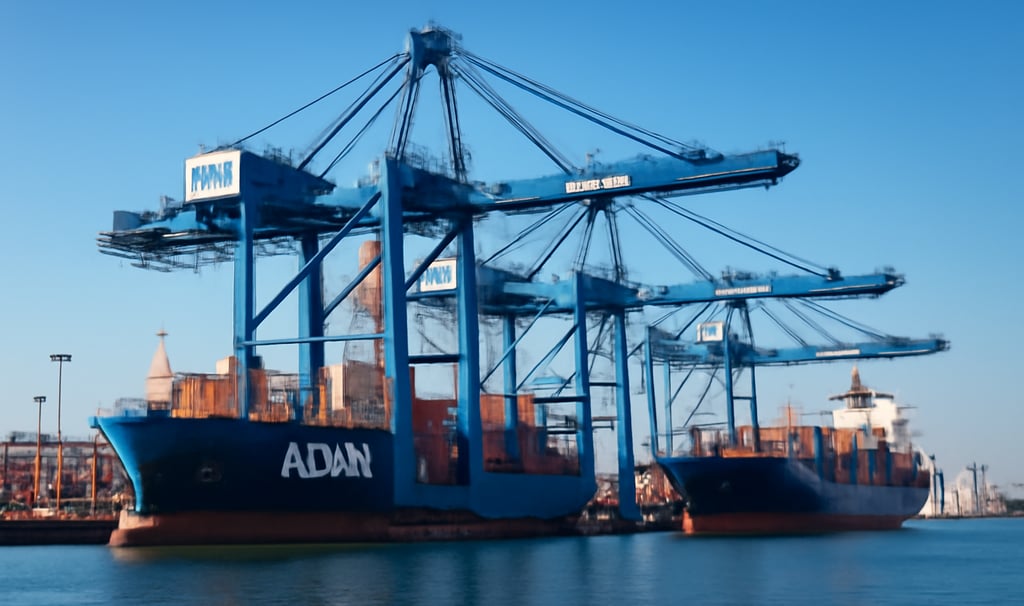Adani Ports Stop Accepting Ships Sanctioned by US, UK, and EU
Adani Group has decided not to allow ships that are under sanctions from the US, EU, and UK to enter or use any of its ports. This is to avoid legal problems related to international shipping and Russian oil trade during the ongoing conflict. The rule applies to all Adani ports in India and abroad.
MARKET NEWS
9/12/20251 min read


The Adani Group has declared that it will not allow ships that are subject to sanctions from the US, UK, and EU to dock at any of its ports. This action is taken in the midst of increased international scrutiny of shipping operations, especially in light of the current crisis between Russia and Ukraine and the associated international sanctions.
Since the Adani Group is India's biggest port operator and oversees a number of important ports along the nation's coast, the decision is noteworthy. Key ports in the group's portfolio include the Vizhinjam Port in Kerala, which is run in a public-private partnership with the state government, as well as overseas ports in Australia (North Queensland Export Terminal), Israel (Haifa), Sri Lanka (Colombo), and Tanzania (Dar es Salaam).
This move is consistent with the larger geopolitical environment, in which China and India have been significant consumers of cheap Russian crude oil. The U.S. responded by imposing a punishing 25 percent tax on Russian crude oil imports, which was exacerbated by a 25 percent tariff from Russia.
The Adani Group is putting itself in a position to comply with international sanctions regimes by prohibiting vessels that have been sanctioned by the US, UK, and EU. This will help to mitigate the risks connected with sanctioned maritime and trade activities. This strategy demonstrates the group's strategic dedication to upholding international standards in the face of a complex global trade landscape impacted by tariff disputes and sanctions pertaining to the sale of Russian crude oil.
Given that the Adani Group has a significant impact on vital maritime trade infrastructure both locally and internationally, the action further highlights India's changing approach to striking a balance between its economic interests and diplomatic pressures from other countries. For shipping companies, dealers, and other participants in the maritime logistics industry negotiating the intricacies of international sanction regimes, this may have wider ramifications.
